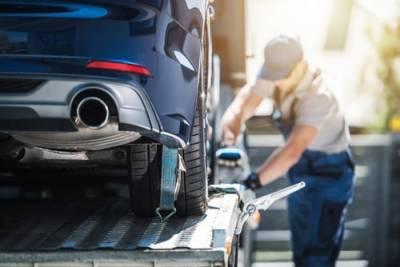Can Bankruptcy Prevent the Repossession of a Vehicle?

There are many situations where Americans may encounter financial struggles, and they may be unable to pay certain bills due to issues such as the loss of a job. However, missed payments can have consequences, and if a person defaults on their auto loan, the lender may repossess the car. In situations where a debtor is facing a potential repossession or where a lender has already taken possession of the vehicle, bankruptcy may be an option that will allow them to stop the repossession process.
Filing for Bankruptcy Before a Repossession Takes Place
In cases where a person has failed to make payments on an auto loan, bankruptcy can offer some protection against repossession. After filing a bankruptcy petition, an automatic stay is put in place. This means that creditors are prohibited from taking any collection action, including repossession. The automatic stay will remain in effect until the bankruptcy case is concluded.
However, the protection offered by the automatic stay is not absolute. In some cases, a creditor may file a petition with the court to have the stay lifted if they can show that the vehicle is not adequately insured or that they may be unable to recover the money owed to them.
After filing for bankruptcy, a person may need to take steps to ensure that they can maintain possession of their vehicle. In some cases, redemption may be available, and the debtor may pay a lump sum to the creditor. This amount will usually be the actual monetary value of the vehicle rather than the remaining amount owed on the loan. If redemption is not possible, a person may have the option to reaffirm the loan and continue making payments. This may allow any missed payments to be added to the principal of the loan, and by discharging other debts through bankruptcy, a person can ensure that they will have the financial resources to make all required payments and retain ownership of their vehicle.
Recovering a Vehicle That Has Already Been Repossessed
In cases where a creditor has already performed a repossession, bankruptcy may still be an option that will allow a person to recover the vehicle. A person will need to file for bankruptcy before the lender sells the vehicle through an auction. If they do so, the equity they own in the vehicle will be included in the bankruptcy estate. To recover the vehicle, the debtor will usually need to get a court order that will require the lender to turn the car over to them.
Depending on the type of bankruptcy filed, a person may be able avoid the loss of their vehicle. In a Chapter 7 bankruptcy, a debtor may be required to turn over certain assets, which will be liquidated by the bankruptcy trustee to repay creditors. However, some assets will be exempt from liquidation, and depending on the laws in the state where the person lives, these exemptions will apply to the vehicle a person owns. In a Chapter 13 bankruptcy, a person can usually keep their car as long as they continue making auto loan payments. Any missed payments and related penalties may be repaid through the debtor's Chapter 13 repayment plan, which will ensure that the person can become current on their loan and avoid a vehicle repossession.
Contact a United States Bankruptcy and Repossession Attorney
If you are facing repossession or have already had your vehicle repossessed, bankruptcy may be an option that will allow you to recover the vehicle or prevent the sale of the vehicle through an auction. An experienced U.S. bankruptcy lawyer can provide guidance, explain your options under bankruptcy law, and help you protect your assets, including your vehicle.
Sources:
https://www.law.cornell.edu/uscode/text/11/542
https://www.autocreditexpress.com/blog/little-known-facts-surrounding-vehicle-repossession/
















